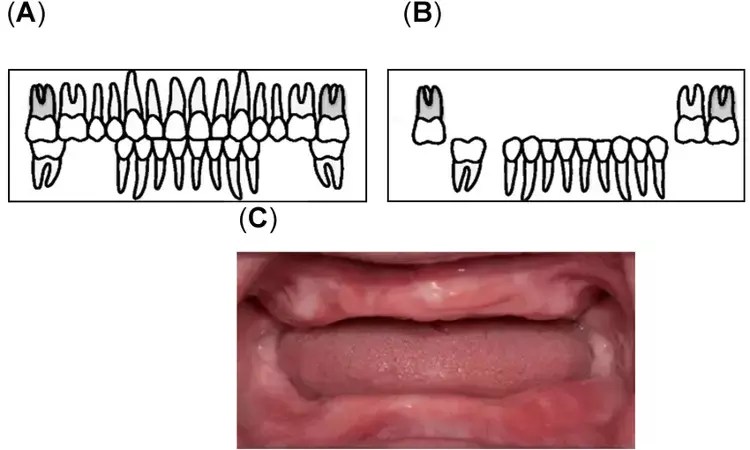- Home
- Medical news & Guidelines
- Anesthesiology
- Cardiology and CTVS
- Critical Care
- Dentistry
- Dermatology
- Diabetes and Endocrinology
- ENT
- Gastroenterology
- Medicine
- Nephrology
- Neurology
- Obstretics-Gynaecology
- Oncology
- Ophthalmology
- Orthopaedics
- Pediatrics-Neonatology
- Psychiatry
- Pulmonology
- Radiology
- Surgery
- Urology
- Laboratory Medicine
- Diet
- Nursing
- Paramedical
- Physiotherapy
- Health news
- Fact Check
- Bone Health Fact Check
- Brain Health Fact Check
- Cancer Related Fact Check
- Child Care Fact Check
- Dental and oral health fact check
- Diabetes and metabolic health fact check
- Diet and Nutrition Fact Check
- Eye and ENT Care Fact Check
- Fitness fact check
- Gut health fact check
- Heart health fact check
- Kidney health fact check
- Medical education fact check
- Men's health fact check
- Respiratory fact check
- Skin and hair care fact check
- Vaccine and Immunization fact check
- Women's health fact check
- AYUSH
- State News
- Andaman and Nicobar Islands
- Andhra Pradesh
- Arunachal Pradesh
- Assam
- Bihar
- Chandigarh
- Chattisgarh
- Dadra and Nagar Haveli
- Daman and Diu
- Delhi
- Goa
- Gujarat
- Haryana
- Himachal Pradesh
- Jammu & Kashmir
- Jharkhand
- Karnataka
- Kerala
- Ladakh
- Lakshadweep
- Madhya Pradesh
- Maharashtra
- Manipur
- Meghalaya
- Mizoram
- Nagaland
- Odisha
- Puducherry
- Punjab
- Rajasthan
- Sikkim
- Tamil Nadu
- Telangana
- Tripura
- Uttar Pradesh
- Uttrakhand
- West Bengal
- Medical Education
- Industry
Loss of Posterior tooth or occlusal support associated with dementia risk, reveals study

Loss of Posterior tooth/occlusal support associated with dementia risk reveals study published in the Journal of Clinical Periodontology.
Emerging evidence suggests association of tooth loss with impaired cognition. However, the differential effects of anterior versus posterior tooth loss, occlusal support loss and chewing ability are not considered comprehensively. They conducted cross-sectional (N = 4036) and longitudinal analyses (N = 2787) on data from Health 2000 and 2011 Surveys for associations of posterior occlusal support loss, anterior versus posterior tooth loss, and chewing ability with baseline cognition and 11-year cognitive decline. Additionally, 15-year incident dementia risk was investigated (N = 4073). Results: After considering relevant confounders and potential reverse causality bias, posterior occlusal support loss significantly increased dementia risk across all categories indicative of posterior occlusal support loss (hazard ratios [HRs] between 1.99 and 2.89).
Bilateral inadequate posterior occlusal support was associated with 11-year decline in overall cognition (odds ratio [OR] = 1.48:1.00–2.19), and unilateral inadequate posterior occlusal support with total immediate (OR = 1.62:1.14–2.30) and delayed recall decline (OR = 1.45:1.03–2.05). Moreover, posterior tooth loss was associated with dementia (HR = 2.23:1.27–3.91) and chewing ability with total immediate decline (OR = 1.80:1.04–3.13). Posterior tooth and occlusal support loss significantly increases dementia risk. The impact of posterior occlusal support loss appears to be dose-dependent, and this effect is distinct from that of dentures. Dental healthcare services should be particularly attentive to the state of posterior dentition. Further studies exploring possible mechanisms are warranted.
Reference:
Asher, S., Suominen, A. L., Stephen, R., Ngandu, T., Koskinen, S., & Solomon, A. (2024). Association of tooth location, occlusal support and chewing ability with cognitive decline and incident dementia. Journal of Clinical Periodontology, 1–16. https://doi.org/10.1111/jcpe.13970
Dr. Shravani Dali has completed her BDS from Pravara institute of medical sciences, loni. Following which she extensively worked in the healthcare sector for 2+ years. She has been actively involved in writing blogs in field of health and wellness. Currently she is pursuing her Masters of public health-health administration from Tata institute of social sciences. She can be contacted at editorial@medicaldialogues.in.
Dr Kamal Kant Kohli-MBBS, DTCD- a chest specialist with more than 30 years of practice and a flair for writing clinical articles, Dr Kamal Kant Kohli joined Medical Dialogues as a Chief Editor of Medical News. Besides writing articles, as an editor, he proofreads and verifies all the medical content published on Medical Dialogues including those coming from journals, studies,medical conferences,guidelines etc. Email: drkohli@medicaldialogues.in. Contact no. 011-43720751


